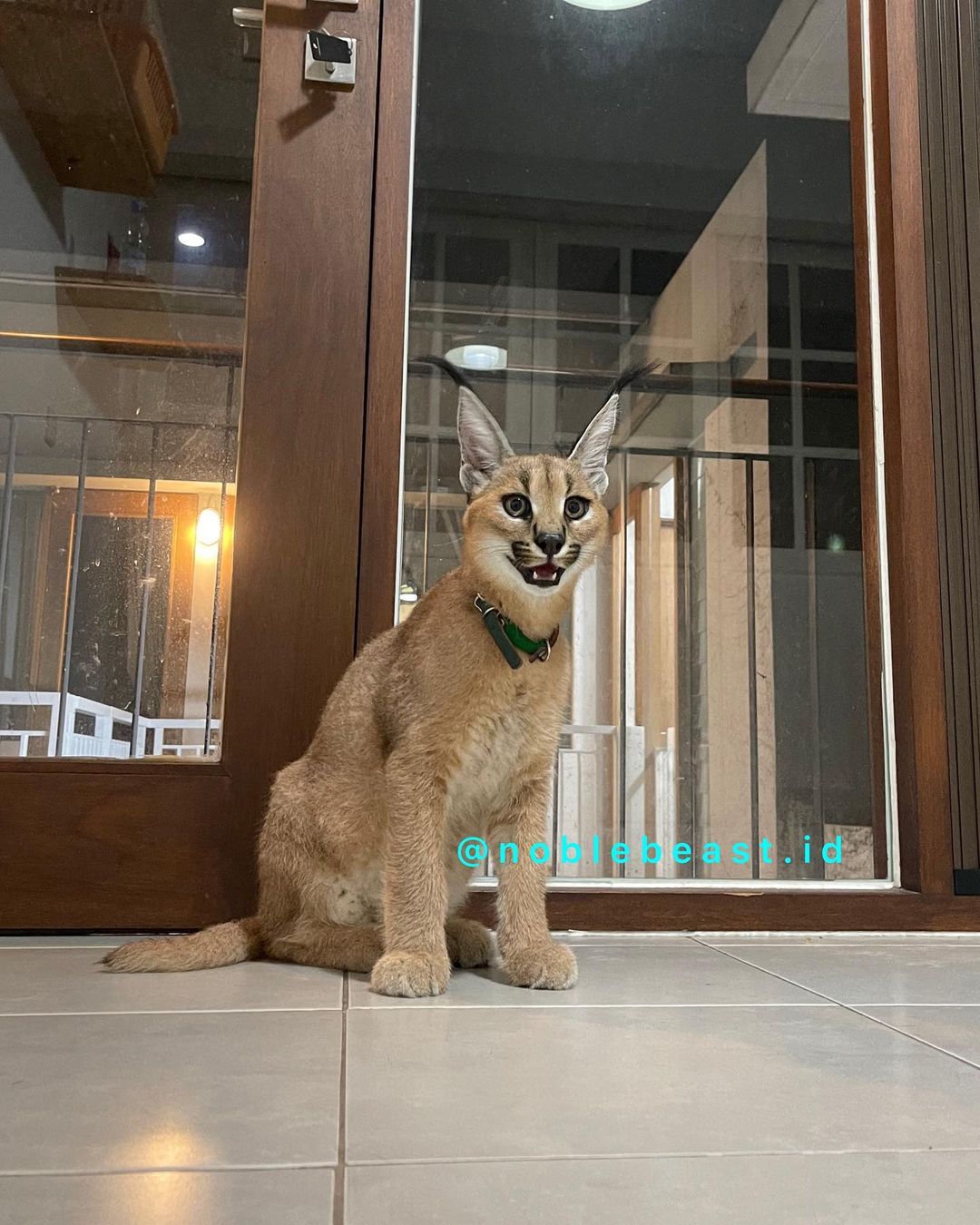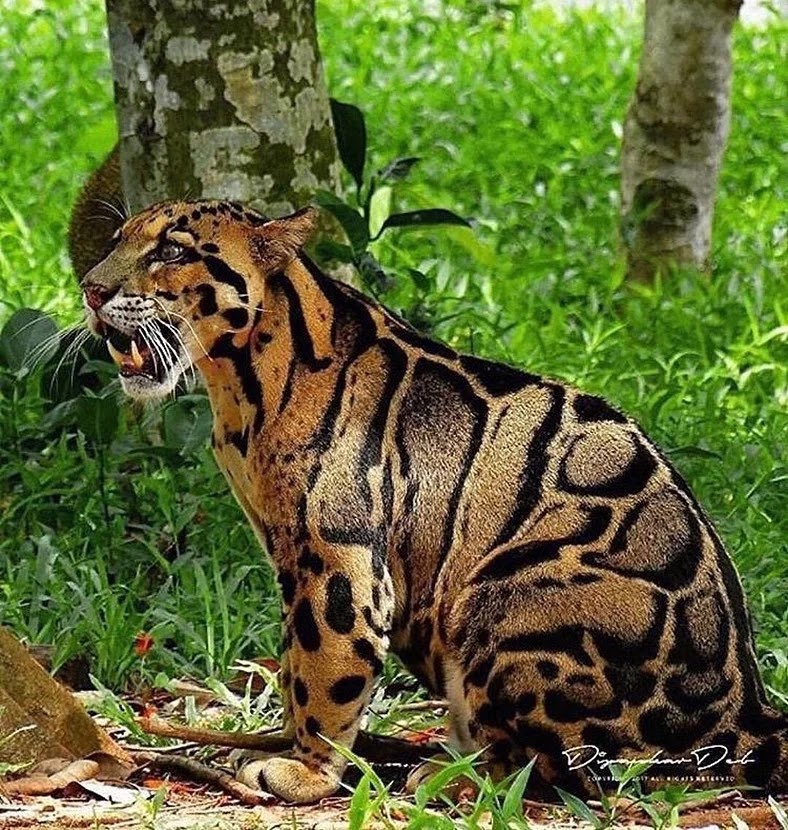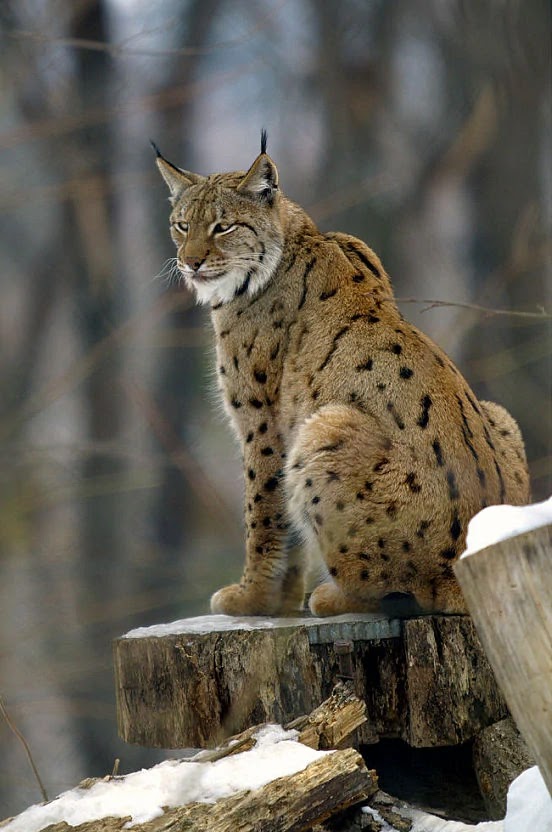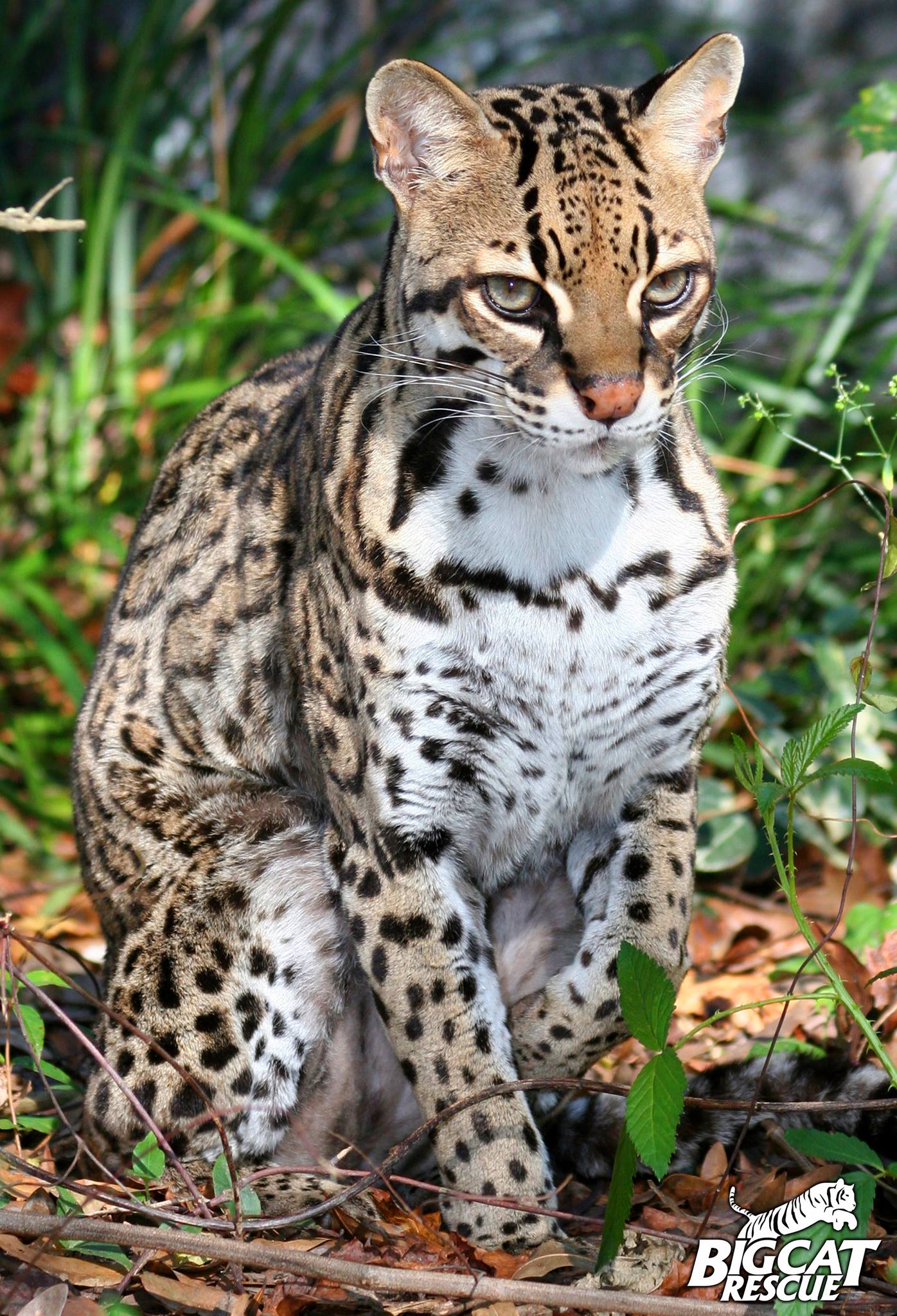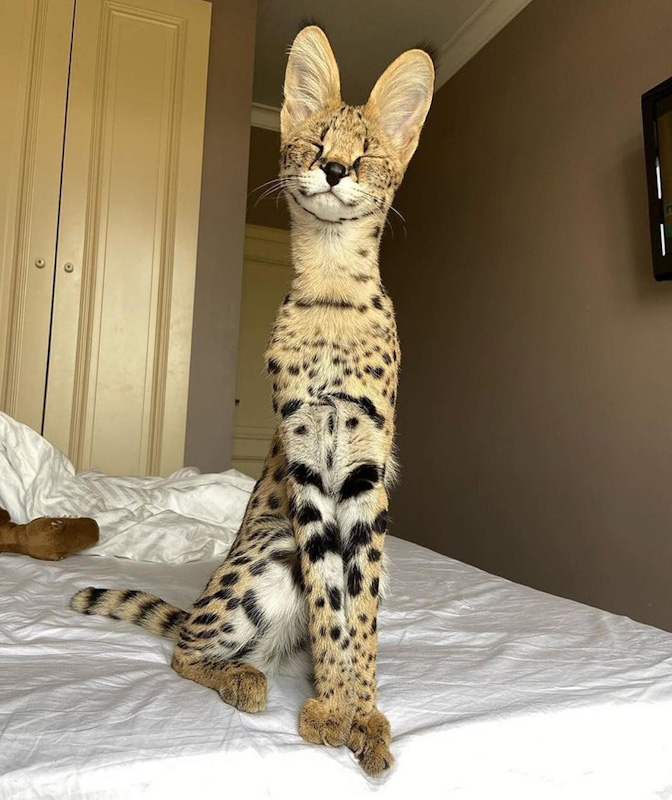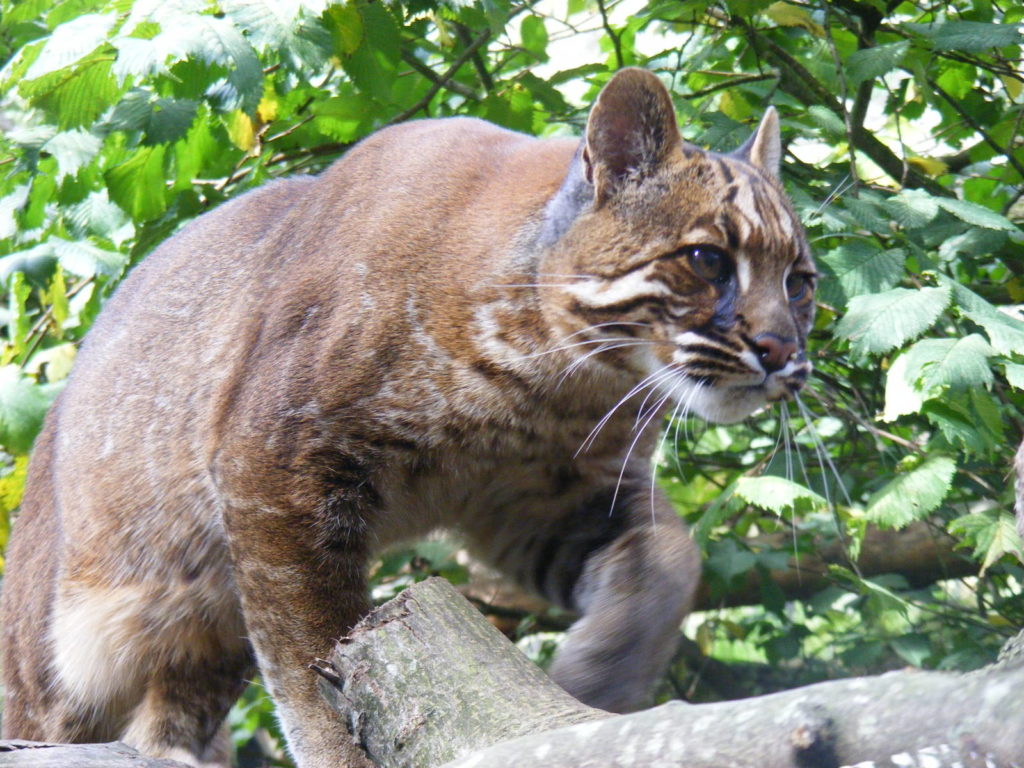In Florida, nine small wild cats can legally be kept as personal pets. These exotic cats fall under Class II wildlife, which is a defined list of species that are considered to pose a potential danger to human safety. Nonetheless, the Sunshine State allows its residents to keep these wild cats as personal pets by obtaining a Class II Personal Pet License (PPL). However, before anybody is issued the license, he or she must possess substantial experience and meet specific cage requirements.
Despite the erroneous assumption that all exotic cats pose the same threat to human safety as would a Tiger or Lion, these nine small exotic cats make great pets for the right owners in Florida.
Furthermore, virtually all non-domesticated cats are not endangered or threatened and are sometimes kept as pets in the United States. These exotic cats don't seek to prey on humans, given their small size and natural history. With that said, here is the list of the nine exotic cats you can keep as personal pets with a license in Florida. In addition, you will discover the extent to which these animals can go as pets. But before that, let's look at the application info and requirements to obtain the PPL license in Florida.
Florida Class II Personal Pet License Requirements
To obtain the Class II license, a Floridian must be at least 18 years of age or above. The cost of the license is $140 per year. Documentation of a 1000-hour experience working with the desired exotic cat may be required before a license will be issued. The facility requirements include properties of at least 2.5 acres and are either owned or leased by the applicant. In addition, the property must be bound by a fence that is at least eight feet high. Here are the standard caging requirements for wild felines in Florida. The PPL application materials include a Critical Incident/Disaster Plan, a Facility Location Information Form, and a Sample Experience Log.
The documents can be submitted along with payment by mail to P.O. Box 6150, Tallahassee, FL 32314-6150.
Things to Consider Before Acquiring an Exotic Cat in Florida
Before considering an exotic cat as a pet in Florida, a pet lover should conduct meticulous research. Generally, exotic cats:
- Are expensive to acquire ($1500–$20,000)
- May be expensive to care for
- May have strict dietary needs
- May not be friendly with any other house pets.
9 Small Exotic Cats That are Legal to Keep as Pets in Florida
1. African Golden Cats
- Lifespan in captivity: 12 years
With a Class II Personal Pet License, you can keep an African Golden Cat as a personal pet in Florida. African golden cats are found in the rainforests of West and Central Africa. They possess the ability to climb but prefer hunting on the ground. In the wild, their main foods include rodents, small monkeys, and tree hyrax. Even though they look sweet and lovable, African Golden Cats are widely deemed unsuitable to be domestic pets due to their elusive nature.
2. Bobcats
- Average Lifespan: 7 years
Bobcats are roughly twice as big as the average domestic cat. They are native to North America, ranging from southern Canada through most of the conterminous US to southwestern Mexico. Bobcats are known to be highly affectionate and bond strongly with their owners. This personality in addition to their coexistence with dogs makes them great pets for the right owner.
However, Bobcats have their aggressive moments. Although it hasn't happened in recent history, Bobcats do actually possess the strength to attack and kill an adult human. According to their history, Bobcats have had success hunting fully-grown deer in the wild. This makes many people suspect that Bobcats can easily and fatally attack humans. Fortunately, there have been no reports of any captive-bred Bobcat fatally attacking a human. However, Bobcats should be kept away from children or heavily supervised around them.
Like any exotic cat, a Bobcat needs a safe place to retreat to as it can be feisty at times. In Florida, most bobcat owners have doggie doors that lead to decently-sized enclosures outside so the pet can go in and out easily.
3. Caracals
- Average Lifespan in captivity: 15 to 18 years
Caracals are characterized by long dog teeth, long tufted ears, and short faces. They are found in Africa, the Middle East, and Central Asia. Caracals typically feed on rodents, birds, and small mammals. Keeping a Caracal as a pet in Florida comes with a huge commitment of time, money and energy. Acquiring a Caracal in Florida could cost you from $1,500 to $20,000. Moreover, food costs for a caracal might also be high.
Caracals are not known to have fatally attacked a human in the wild and therefore can make excellent pets for the right owners. However, you must live on a secure, high-fenced property and have a large outdoor area in which your pet Caracal can roam, sneak and play.
4. Clouded Leopards
- Average lifespan in human care: 17 years
You can legally keep a Clouded Leopard as a personal pet in Florida. Clouded Leopards are beautiful Asian cats seldom spotted in the wild. As a result, their habits remain a bit mysterious. Despite being great climbers, Clouded Leopards do most of their hunting on the ground. Like most cats, they are solitary animals, which makes scientists unsure about how exactly they behave in the wild. According to National Geographic, Clouded Leopards feed on deer, pigs, monkeys, squirrels, and birds.
As pets, Clouded Leopards are known to be super friendly and sociable.
5. European Lynx
- Lifespan in captivity: Up to 20 years
The European, or Eurasian Lynx is the largest lynx species found in Central and Eastern Europe. An adult Eurasian Lynx is twice the size of an average house cat. Many Americans have thrown themselves at the adventure of keeping a Eurasian lynx as a pet and weren't disappointed. Acquiring a Eurasian Lynx could cost you from $2,000 to $7,500 in Florida. In addition to the European Lynx, Floridians can also legally keep the Canadian lynx as a pet. Watch an adorable pet Eurasian Lynx in the video below.
6. Fishing Cats
- Average lifespan: 10 to12 years
The beautiful fishing cat is a medium-sized wild cat native to Asia. Fishing cats primarily feed on fish crabs, crayfish, and frogs. They can be aggressive when threatened or feel cornered. Below is a video of Fishing Kittens seeing water for the very first time.
7. Ocelots
- Average Lifespan: 8 to 11 years
Ocelots are mostly active at night hunting rabbits, rodents, iguanas, fish, frogs, and monkeys in the wild. They mostly inhabit South American rainforests and can also be found as far north as Texas. As pets, Ocelots are agile and playful. However, in order to protect themselves or their young, pet Ocelots can act aggressively if feel threatened. In addition, they have a tendency of leaping around and sucking on their owners' fingers. Consequently, a pet ocelot may inadvertently injure its owner with bites. This personality makes keeping them as pets hard. Many pet ocelots escaped in Florida. Some of them were released by their owners after they released that the pets are not nice or cuddly.
8. Servals
- Average lifespan: 19 years
The African serval is known for its small head, lean body, long legs, and short tail. These beautiful animals are not easy-to-keep house pets and are known to bond to only one family their entire life. Before acquiring a serval as a personal pet, you should take deep consideration and education.
9. Asian Golden Cats
- Average lifespan: Up to 17 years
The Asian golden cat is a medium-sized wild cat found mostly in Southeastern Asia. Generally, Asian golden cats are twice the size of the average house cat. They are solitary creatures that mostly feed on birds, rodents, reptiles, and small mammals in the wild. Born hunters and carnivores, Asian Golden Cats would definitely not make an excellent pet.
See also the eight wild animals that can be kept as pets without a permit in Florida. After that, you might want to look at the 24 wild animals that are unlawful to keep as pets in Florida. Furthermore, you might be interested in these 11 wild animals that can be kept as pets with a free permit in Florida.




